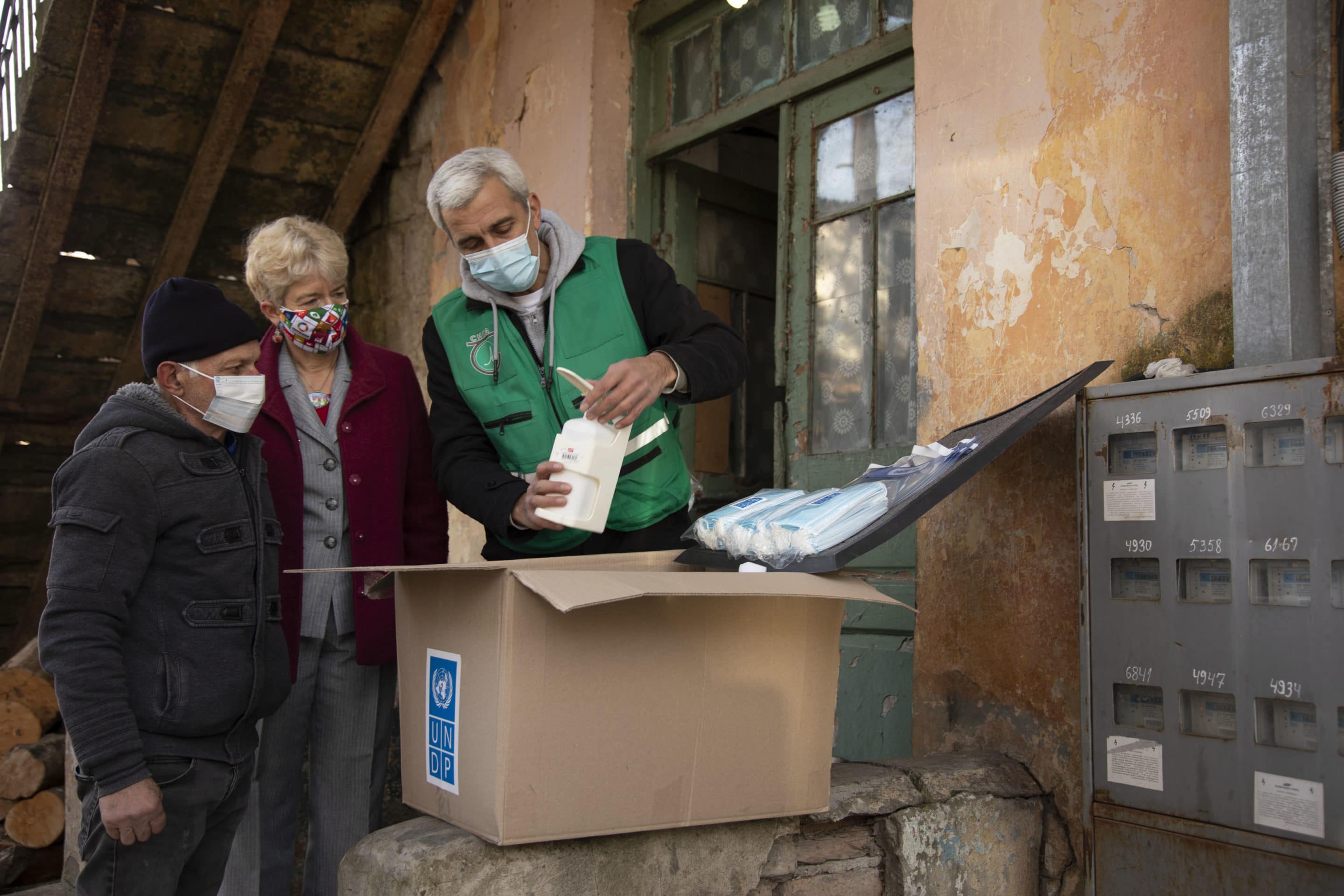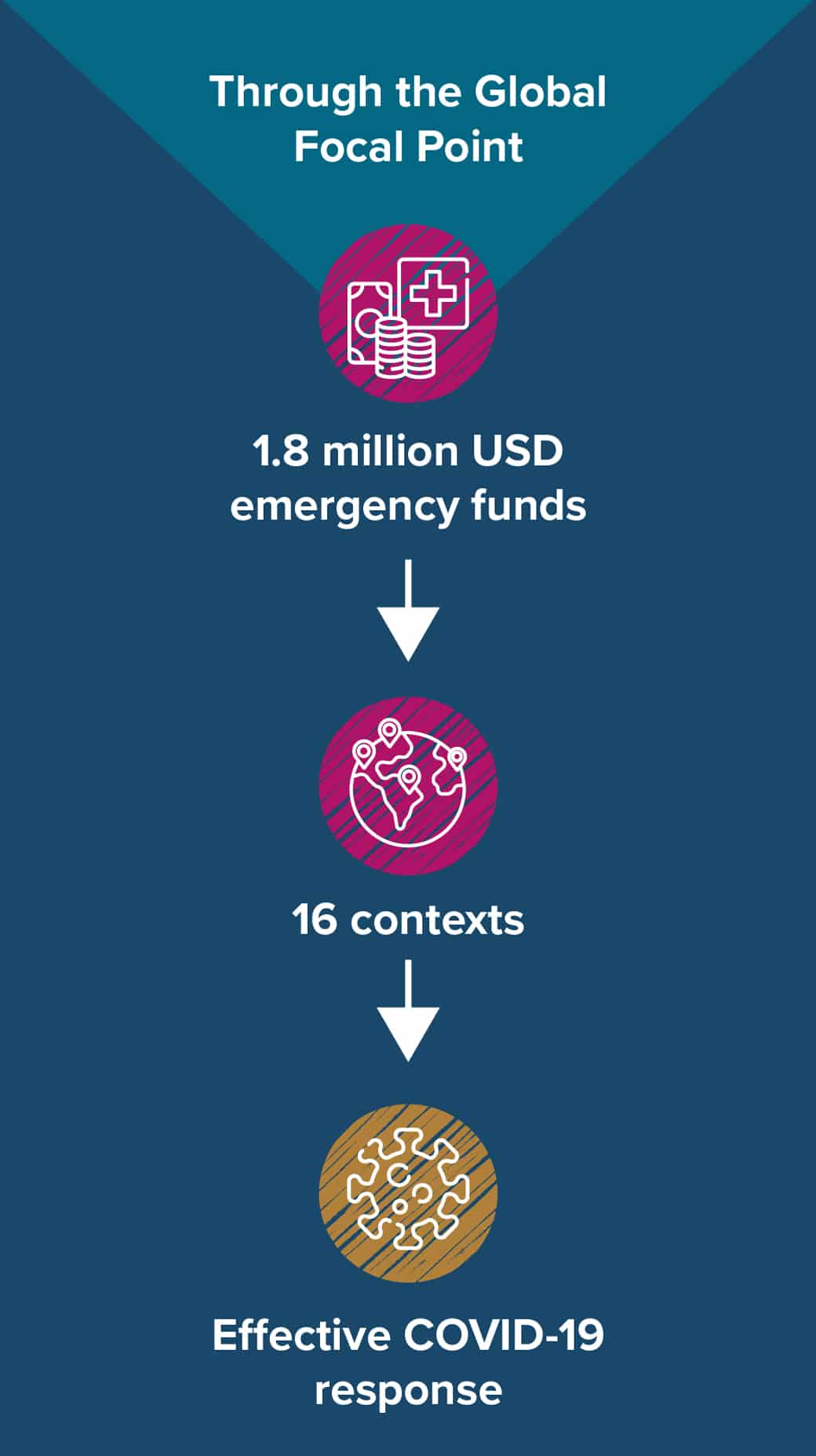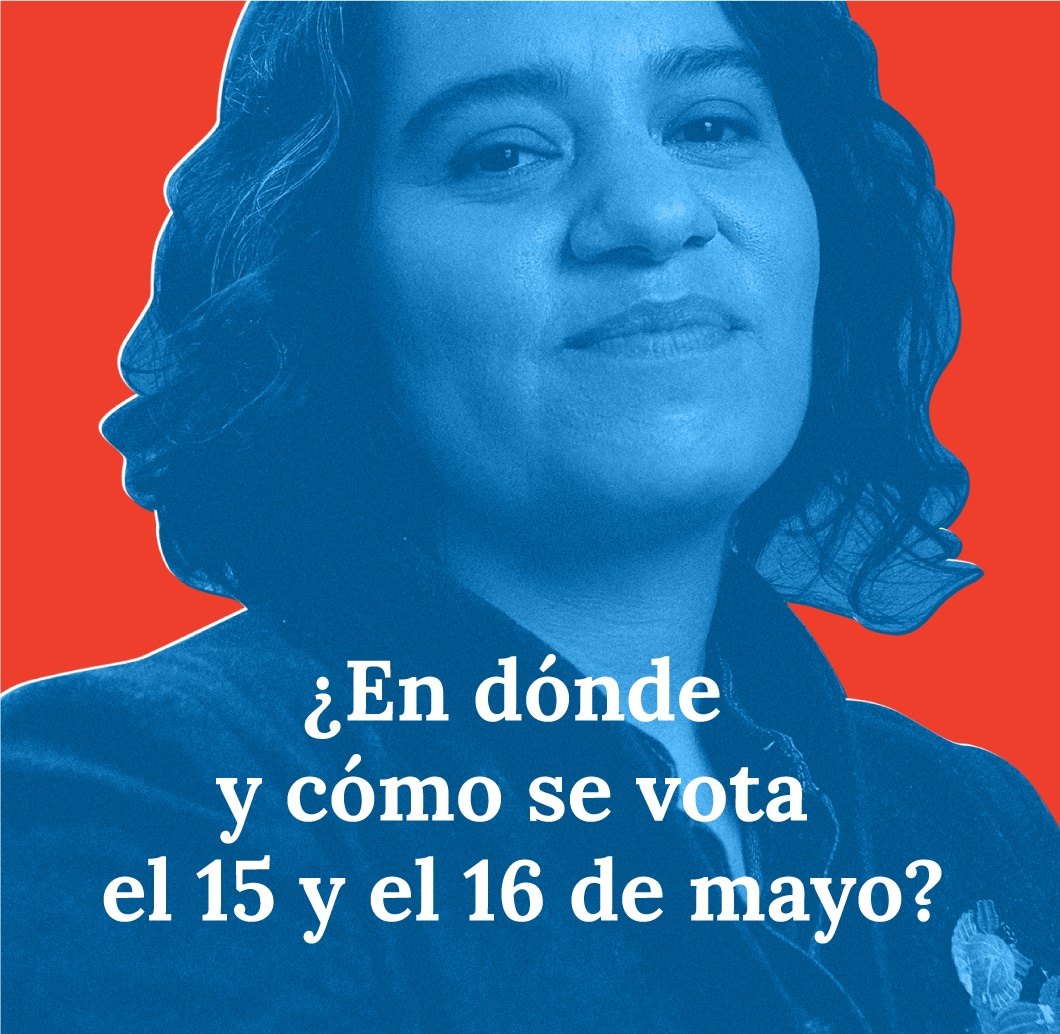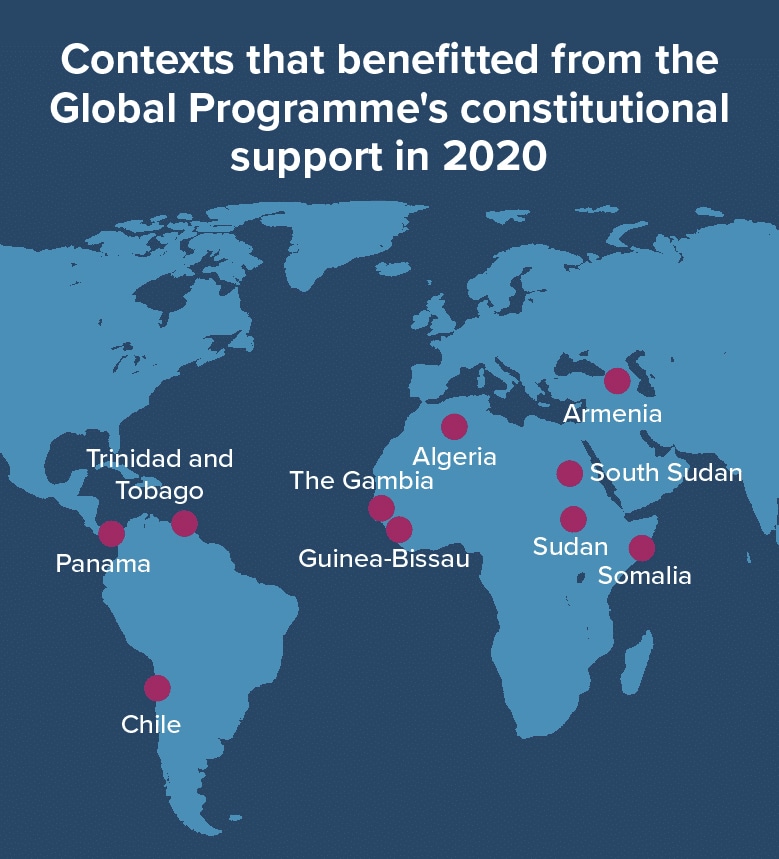Focus
Political Engagement
In contexts affected by crisis and conflict, establishing and maintaining the rule of law is essential for sustainable peace, and for preventing outbreaks as well as the recurrence of conflicts. Where there are democracy deficits or inequalities, UNDP encourages governments to champion human rights based on their international obligations, but also based on shared values and understanding that sustainable peace and resilient economies can only be achieved through fostering the rule of law and access to justice. To this end, UNDP engages with political leaders and national partners, providing expert advice, technical assistance and financial support to ensure comprehensive nationally owned programming. UNDP’s support is dependent on the will of political leaders and stakeholders, and therefore political engagement enables us to pursue the objectives of increased accountability, public participation, and adherence to the rule of law.
Global Focal Point for the Rule of Law.
A joint arrangement for delivery of rule of law in fragile settings.
The Global Focal Point for the Rule of Law continues to reinforce the One UN approach at the global and national levels to address violent conflict, protect human rights and restore justice and security for conflict-affected people. At Headquarters, this arrangement is co-chaired by UNDP and DPO, with the support of a small inter-agency Core Team. At the country level, the senior United Nations official in-country – the Special Representative or Executive Representative of the Secretary-General; or, in non-mission settings, the Resident Coordinator – is responsible and accountable for guiding and overseeing United Nations rule of law strategies. UNDP plays a lead role leveraging positive commitment and action from national stakeholders to strengthen rule of law capacity and good governance.
UN Security Council Resolution 2253(2020) “[…] underlines the importance of the close coordination between UN peace and political missions and the United Nations Country Team, and notes the role of the Global Focal Point for Rule of Law in the context of security sector reform in enhancing the United Nations integrated responses and joint approaches at the country level, and encouraging relevant United Nations entities mandated for security sector reform activities to work through the existing coordination mechanisms, as appropriate.”
In 2020 the GFP, together with UNDP’s Global Programme on Rule of Law and Human Rights, supported joint efforts to assist national authorities in their response to the COVID-19 pandemic and in the implementation of preventive measures. Through this partnership, catalytic seed funding (in total $1.8 million) was provided to UN Country Teams and Missions in the following countries: Afghanistan, Angola, Barbados and the OECS, Bolivia, CAR, Cote d’Ivoire, DRC, The Gambia, Georgia, Guinea-Bissau, Haiti, Mali, Peru, Somalia, South Sudan, and Sudan. In several instances, the GFP support also extended to improving detainees’ living conditions and addressing broader health and hygiene issues. And joint advocacy efforts by GFP partners on the ground led to the early release of low-risk prisoners (e.g. in Somalia and Mali).
New rule of law programmes in the CAR, DRC, Mali, Sudan, and South Sudan received catalytic GFP funding. This included support to the transition in Sudan, and seed funding that enabled the establishment of a joint project (UNDP, UNMISS, OHCHR and the Team of Experts) to address conflict-related sexual violence (CRSV) in South Sudan.
Through the UNDP and UN Women gender justice partnership, a policy brief on gender responsive rule of law engagement and its contribution to the implementation of the Women, Peace and Security agenda is underway in close cooperation with all GFP partners. The expected issuance is July 2021 at the launch of the Global Compact for Women, Peace and Security and Humanitarian Action. Another initiative underway in 2021 is the knowledge product on joint rule of law programming designed to help practitioners and implementers with practical guidance.

Former UNDP Georgia Resident Representative delivers hygienic and sanitary supplies to the IDP collective centers in Shida Kartli, Georgia, during the upsurge in COVID-19 cases.
© UNDP Georgia, Leli Blagonravova


UNDP unrolled a nationwide civic education campaign to inform citizens on the issues and procedures around the plebiscite, with a particular focus on women. ©️ UNDP Chile

Constitutional Support
Support to constitution-making processes is a central element of strengthening the rule of law, as constitutions set out the principles on which a state is based, and the institutions and processes through which public power is exercised. At their best, constitutions commit a state to the rule of law by providing for the supremacy of law, equality before the law, access to justice, and accountability, among other things. Especially during the COVID-19 pandemic, equal and just application of law has been crucial to ensuring national responses that do not unduly infringe human rights. UNDP views support to constitution-making processes as not only an integral part of its rule of law programming, but also central to its mission to fulfil the promise of the 2030 Agenda and Sustainable Development Goals and to prevent violent conflicts.
UNDP’s approach to constitution-making assistance is underpinned by the recognition of people’s sovereignty. In this regard, UNDP supports national partners to design and implement constitutional processes that are inclusive, participatory and transparent, are based on applicable international norms, standards and good practices, and are tailored to the specific country context to ensure the process is nationally owned and led. Support based on these principles is more likely to contribute to the goals of preventing conflict, building peace, and promoting human rights and sustainable human development. In Chile, for example, UNDP assisted the national legislative and electoral authorities to adjust voting procedures in light of the COVID-19 pandemic in order to facilitate a safe and participatory constitutional plebiscite in October 2020. In parallel, UNDP unrolled a nationwide civic education campaign to inform citizens on the issues and procedures around the plebiscite, with a particular focus on women. As a result of the campaign, electoral participation increased by more than half a million votes in comparison to the previous election. The turnout was the largest since Chile adopted voluntary voting in 2012. In collaboration with UN Women, UNDP facilitated discussions with women leaders on ways to increase women’s participation in the constitutional process and promote women’s equality and rights in the new constitution.
In Sudan and South Sudan, UNDP worked with national authorities and civil society actors to help design constitutional reform processes that through inclusion and participation are more likely to support the continued transition to permanent peaceful democratic constitutional states.
Constitutional support is provided by UNDP in close collaboration with DPPA, DPO, UN Women, OHCHR and other UN and external partners. In 2020, the Global Programme on the Rule of Law and Human Rights supported national partners to plan and/or undertake constitutional reform in Algeria, Armenia, Chile, The Gambia, Guinea-Bissau, Panama, Somalia, South Sudan, Sudan, and Trinidad and Tobago.